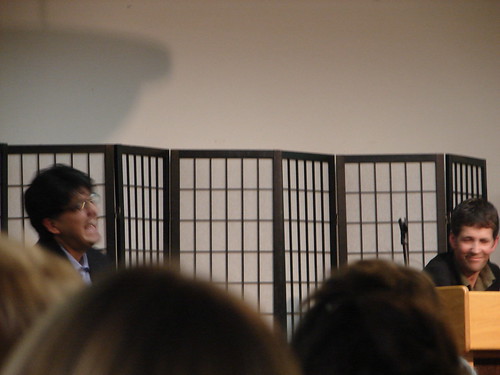Originally hailing from Great Falls, Montana, and now based out of Norwich, England by way of Portland, we decided to profile her as part of our December Bonus Content. Sometimes it's nice to look outside our own backyard. ( — Sara Habein)

1. How did you get your start in photography?
I had always loved shooting my friends with disposable cameras. That began in college, but I never really took it very seriously. I began painting around then as well. In high school, I had always been very caught up in academic success -- I never really thought I had time for art. Now it is all I want to do.
My interest really began when I traveled to London on a study abroad course. My mother forced me to get a 'real' camera, rather than the disposables I insisted I was happy with. It was the instant results of the digital camera combined with an excuse to shoot every day that really made me notice the potential behind a camera. I've always loved finding beauty in the everyday. For some reason, until then, it hadn't dawned on me that photography was the perfect medium.
2. You've done quite a bit of traveling around the world. How has that affected your photography? And where are some of your favorite cities to shoot?
Like I said, travel was my excuse to begin photography. I really like observing a situation from a distance, allowing it to unfold, and capturing that, rather than getting involved. It is what I am most comfortable doing, and what I think is the purest form of photography. I have recently done some modeling shoots, where I have to take more of a directorial role. It is strange, and against everything I thought photography should be -- but I do enjoy the new potential. It is still possible to find those naturally beautiful moments - you just have to juggle a few more tasks at the same time.
That being said, there is nothing like exploring a new city with your camera. It is what makes me most relaxed. I think Osaka has been my favorite city to shoot so far. Or maybe I am just happiest with some of the shots that have come out of there. I don't want a shot to need to be in Japan -- I want it to be universal. At the same time, you can't completely divorce a situation from its place. Also, there is a comfort that exists in Japan. There is safety. I hate it when people watch me take photos, and in Japan, it seemed I was so conspicuous no matter what I did, it didn't matter that I was taking photographs. Now, living in the UK where I blend in a bit more, I feel like I need to answer for why I am taking people's pictures. I wish they would just see they are lovely in a lovely situation and go about their business.


3. What projects do you currently have in the works?
After all that talk about the purity of the found moment, I have to admit, I have begun to move into portraiture. I guess you really can't knock it until you try it because it is quite fun. I've been playing with editing software and self portraits. I also made a tiny silly stop animation. It is an amazing medium, but you have to be careful it doesn't end up being a jagged film. There has to be a reason you are using stills instead of a movie camera. I will always love street photography, though. I hope I never stop that. I don't really plan projects when I go out. I like the freedom of shooting what I see.
Also, I do have an ongoing project that stems from the idea of looking itself. It's about peering though a layer of glass. I think that having a self imposed layer -- like the camera lens, or a piece of glass, can make you truly see what is there. It is about the subjectivity of reality -- and the attempt (and probable failure) to see something objective.
4. Being from Montana, what's the silliest stereotype/misconception you've heard regarding your home state?
Ha! If people knew where it was I might have to deal with that! Actually, most people are quite awestruck when I mention that I am from Montana. It wasn't until I left that I realized how incredibly beautiful it is. Not so much in Japan, where they definitely thought we rode horses to our one room court house, but in the UK, there is a fascination with America. In particular, they love to romanticize our blue collar, down home values. Montana fits perfectly into that. Being a nation the size of Montana itself, there is an admiration for our space, our ruggedness, and to a degree, our wholesome naivety. I find myself buying into that, and to a degree, seeing how true it can be. I can't wait to come home.

For more of Stephanie Elliott's work, please visit her webpage and her flickr page.












